Eurovision 2015 will be funny but it won't be a joke, we have lots of things to thank the competition for
Essentially, expect another year in which our entry is so sturdy and plain that you could hammer it into the floor and use it as a fencepost.
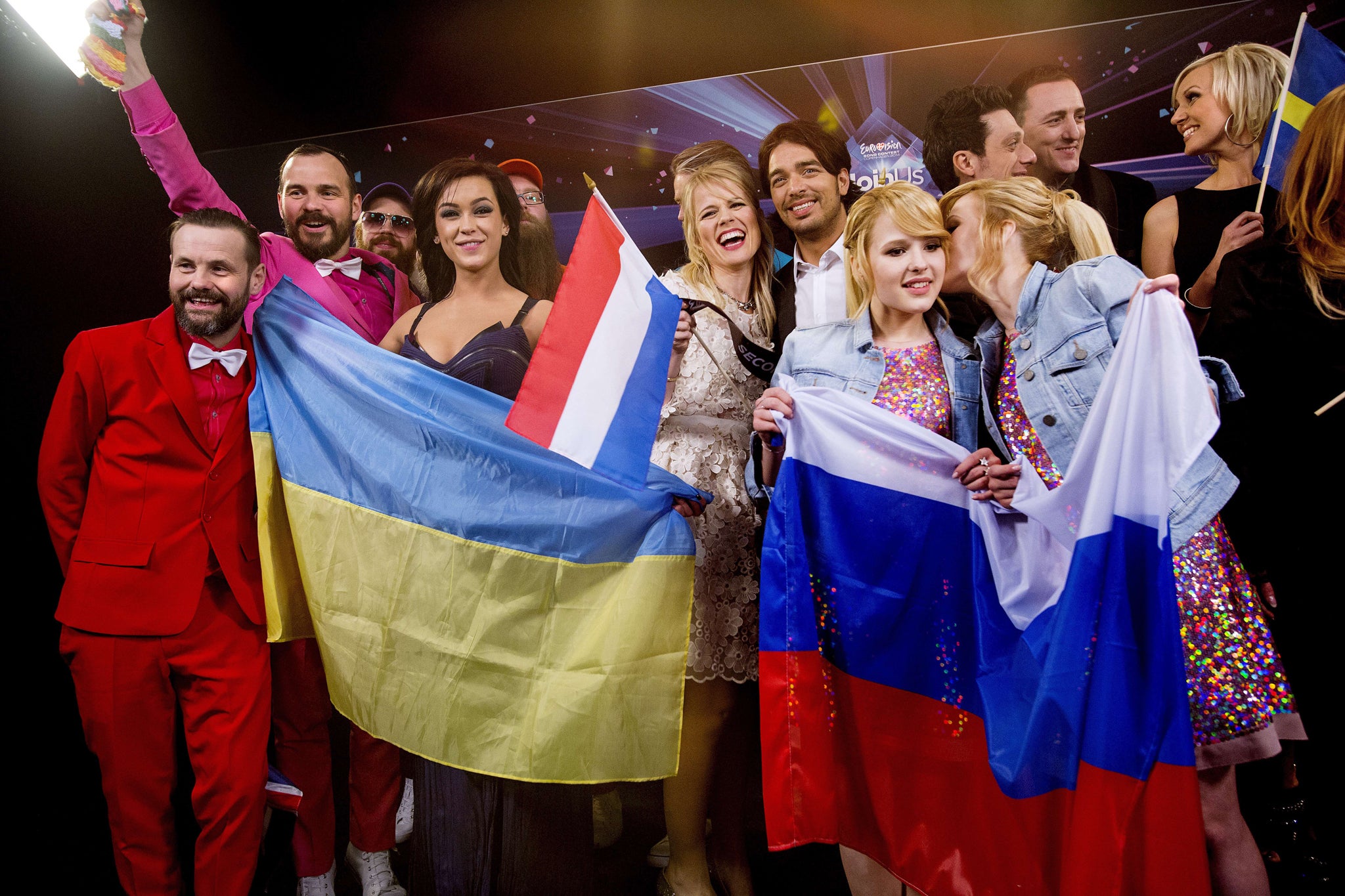
Your support helps us to tell the story
From reproductive rights to climate change to Big Tech, The Independent is on the ground when the story is developing. Whether it's investigating the financials of Elon Musk's pro-Trump PAC or producing our latest documentary, 'The A Word', which shines a light on the American women fighting for reproductive rights, we know how important it is to parse out the facts from the messaging.
At such a critical moment in US history, we need reporters on the ground. Your donation allows us to keep sending journalists to speak to both sides of the story.
The Independent is trusted by Americans across the entire political spectrum. And unlike many other quality news outlets, we choose not to lock Americans out of our reporting and analysis with paywalls. We believe quality journalism should be available to everyone, paid for by those who can afford it.
Your support makes all the difference.Next weekend, 10 million Brits will be cackling at their television sets, for this Saturday night is the 60th anniversary of the Eurovision Song Contest – the flamboyant musical symposium watched by around 200 million Continent-wide, and I’ll be chuckling along with the rest of the nation.
The capering, tinsel-clad numpties! The stool-infesting schmaltz warblers! In recent years we’ve seen the contest won by a foot-stamping Ukrainian warrior princess and a troupe of wannabe Conan the Barbarians (Ukraine: 2004); cleavage-baring frauleins trying to solicit votes via the erotic use of a butter churn (Poland, 2014); and tone-deaf Eurorave-loving grannies attempting to bake a loaf of bread mid-song (Russia, 2012).
There’s no denying it: Eurovision is funny.
But it isn’t a joke. Not really. As we cackle, we tend to assume that the rest of Europe’s bonkers Eurovision entries are what they consider to be the height of tasteful cultural entertainment: the sort of thing you’d find on the Cypriot equivalent of The South Bank Show. They’re not, though.
As a long-standing Eurovision fan, I’ve watched the contest around the world, from the gay bars of Oslo to living rooms in Athens and, trust me, they’re not sat there saying: “It’s a shoo-in! They’ve clad the accordion player in PVC body armour!” Sometimes, when it comes to international competitions, you end up with a duff entry. Lest we forget, in 2009, we entered a contestant whose career highlight was having won Billericay’s Got Talent. Last year, we sent an England squad to the World Cup who didn’t know how to play football.
From the off, Eurovision has always been more than a song contest. At the 1956 meeting of the European Broadcasting Union, where the show was first mooted, they weren’t brainstorming effective ways to get European toes tapping. They were looking for ways to create a strong European cultural identity. One that would stop the Cold War from either turning our continent into an annexe of Russia or “that bit of the US where they have a decent healthcare system”.
Admittedly, its avoidance of Americanisation hasn’t been a huge success – see entries produced by US R&B superstar Timbaland (Russia, 2008) or the year that Dita Von Teese was paid to loiter onstage on a sofa (Germany, 2009). But it has made a huge cultural and social impact. When Israel’s Dana International took to the stage of Birmingham’s National Indoor Arena in 1998, she did so against a backdrop of hatred.
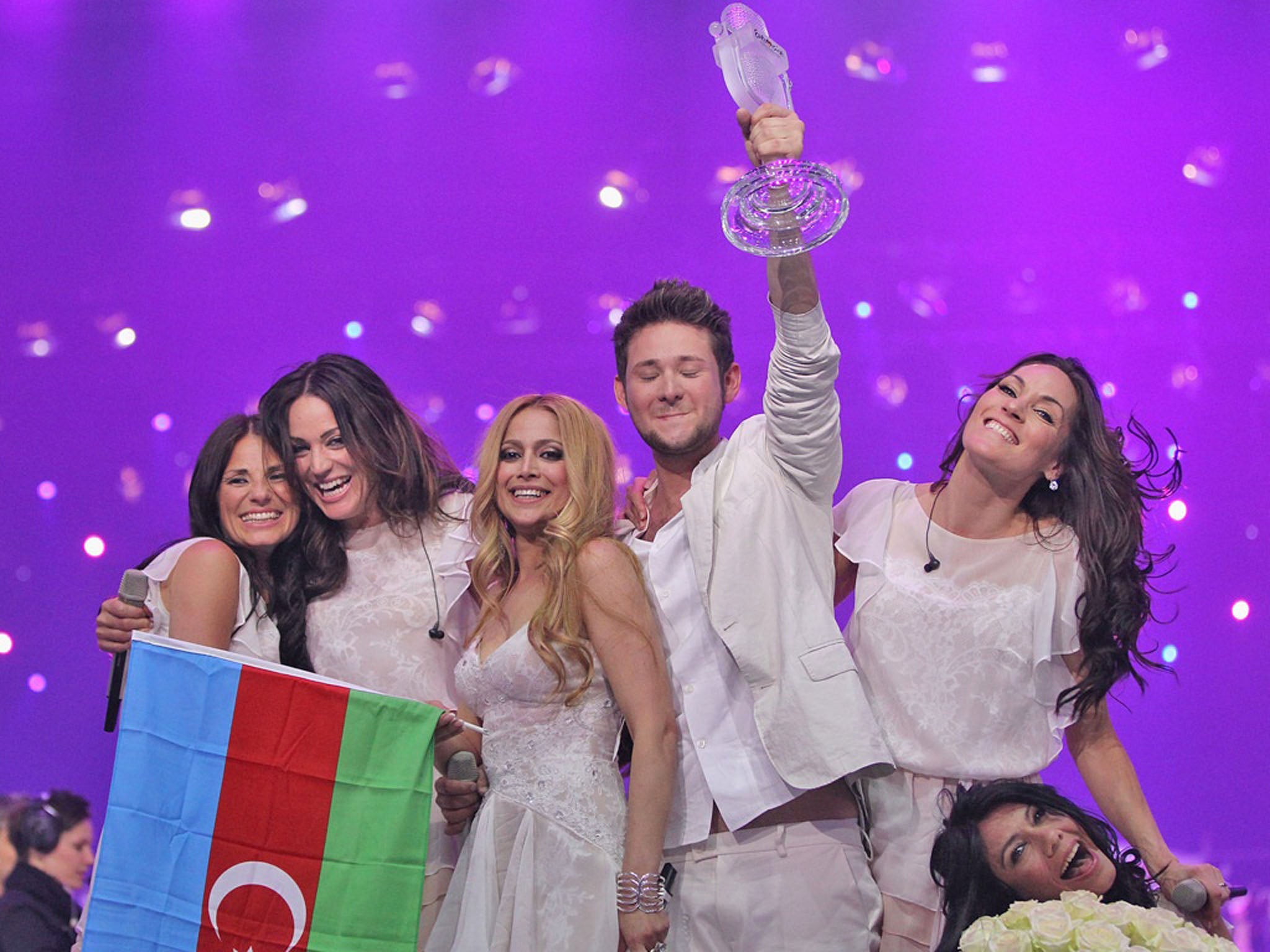
For months leading up to the event, Orthodox Israeli MPs were so incensed at the selection of a transgender woman that they’d begun laying the blame at the feet of the British government, calling her nomination “an abomination” and “a message of darkness”.
Yet, as the Eurovision audience watched almost certainly the first transgender pop star they had ever encountered, they didn’t boo. They didn’t jeer. Across the continent people reached for their phones and voted her straight to No 1. The citizens of Europe had spoken, and they had said: “Ignore the haters: we love you!”
Cut to 17 years later and the contest is about to feature Eurovision’s first wheelchair user and this year’s Finnish group all have learning difficulties. Other individuals that Europe has opened its heart to include lesbian Romany Gypsy Marija Serifovic, who won in 2007 with a ballad of unrequited sapphic love, and Austria’s bearded beauty Conchita Wurst.
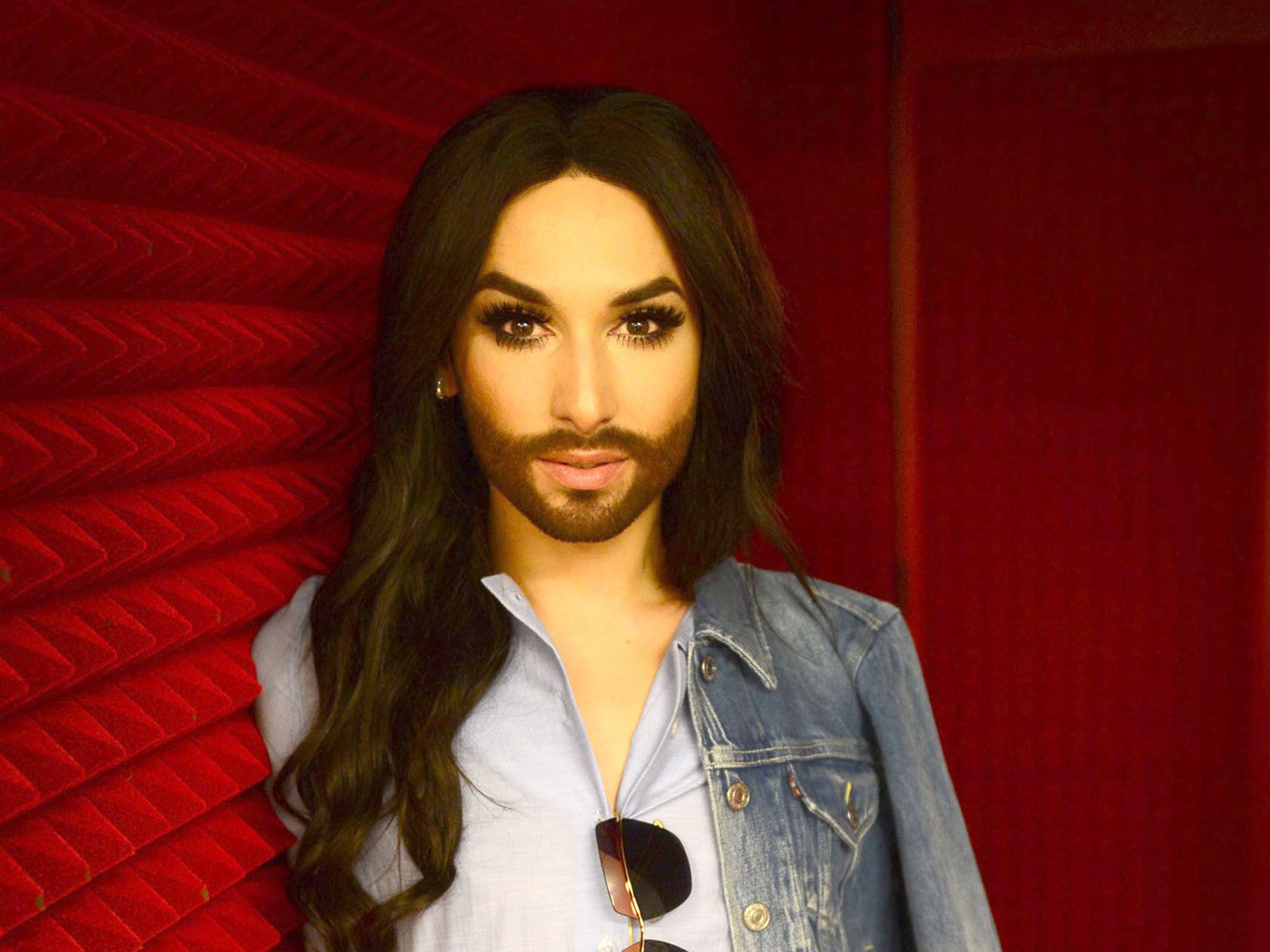
After Wurst’s victory last year, the Secretary General of the United Nations, Ban Ki-moon, released a statement calling her “a symbol” for the “fundamental principle embedded in the UN Charter and the UN Declaration of Human Rights”. Wurst’s message of tolerance so inspired the Austrian Chancellor that he announced his intention to legalise gay marriage.
Though when it comes to Eurovision’s political reverberations, that’s not the half of it. In 1974, the Portuguese entry wound up sparking a revolution, after it was played on the radio as a signal to rebel troops to take to the streets to overthrow their authoritarian government.
In 1968, when the Austrian government wanted to make overtures to the plotters of a revolution in Prague – whose aim was to end the Soviet regime’s repression of liberties such as free speech – they did so by inviting Czech singer Karel Gott to be their Eurovision entrant. And when the 2012 competition took place in Azerbaijan – a country with an atrocious record of human rights abuses and a government known for suppressing critics – hundreds of citizens were allowed to march through Baku, calling for democracy and freedom of speech.
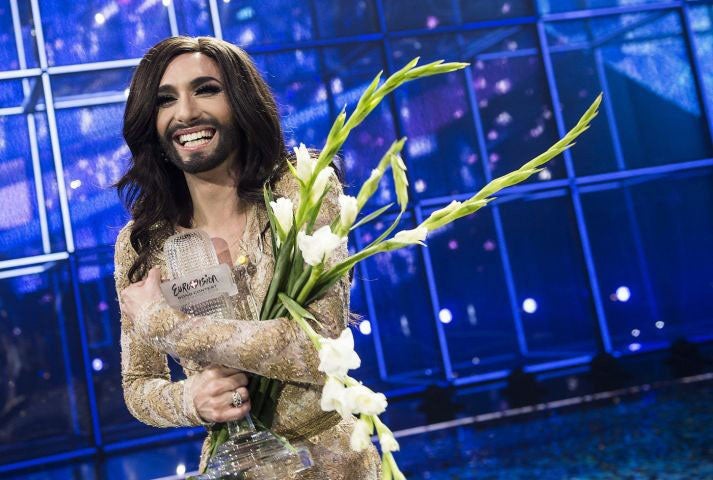
Other things that we can thank Eurovision for? Given that the 1997 contest pioneered the technology required for tele-voting on a mass scale, you can pretty much chalk up the existence of reality TV to Eurovision. Plus, it was a key factor in the development of the pan-European network of fibre optic cables that allow us to watch major sporting events. So key, in fact, that the network’s very name is “Eurovision”. And the ability to watch a Champion’s League semi-final from Nou Camp stadium, without it looking like 22 stick men being attacked by a blizzard of static, is down to the fact that TV executives needed the technology to transmit Cheryl Baker’s skirt being ripped off (1981) in clear vision.
Granted, it hasn’t always been a well-oiled machine. In its first year, a number of member nations – including the UK – were disqualified after missing the entry deadline. Hence a desperate attempt to bulk out the broadcast that included the Luxembourg entrant simply changing his jacket and hoping no one would notice him performing the same song twice. And, in 1969, the final sparked such controversy that the following year five countries boycotted the contest.
Not just because they awarded sixth place to a 12-year-old singing about his mum. Not just because the female host staggered around the Salvador Dalí-inspired stage under the weight of a 14-kilo porcelain dress. But because it had never occurred to Eurovision’s creators that they might need a tie-breaking mechanism. So, when four countries earned the same points tally and the host was left stuttering “Erm, what do I do with the prize?”, they had to announce a four-way win and wheel all four entrants back on stage to perform the winning songs.
More recently, one of the biggest embarrassments has been Britain’s record. In 2011, the BBC gave up televising the selection of our entrant altogether and resorted to coaxing faded pop stars out of retirement. It was certainly brave to launch this approach with boyband Blue and a publicity blitzkrieg that included a naked shoot for Attitude magazine in which Simon Webbe sternly pointed at his penis as though the reader were an erratic cleaning lady and his nether regions an unmopped patch of lino.
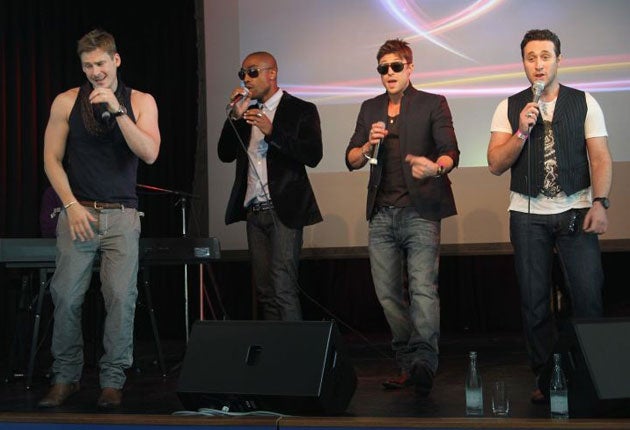
But it was not that surprising that their mawkish ballad failed to make the top 10. Nor that it’s got even worse, now that they’ve abandoned the old-timers (Engelbert Humperdinck, Bonnie Tyler), and moved on to saddling unknown pop wannabes – such as Molly Smitten-Downes (2014) and this year’s Electro Velvet – with our national albatross.
Essentially, expect another year in which our entry is so sturdy and plain that you could hammer it into the floor and use it as a fencepost. Don’t worry, though, the other nations will provide more than enough entertainment. And, if we’re lucky, a little bit of heart-warming social change too.
‘The Eurovision Song Contest Grand Final’ will be broadcast on BBC1 and BBC Radio 2 on Saturday
Join our commenting forum
Join thought-provoking conversations, follow other Independent readers and see their replies
Comments